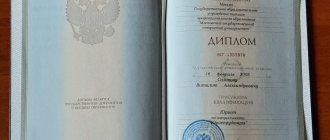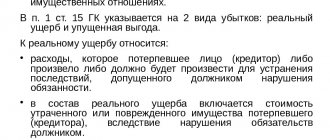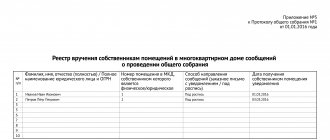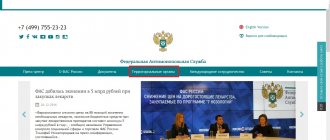An unpleasant surprise for residents of an apartment building can be a terrible stench coming from the basement on the first floor. Unpleasant odors already accumulate in the basement due to poor ventilation, dampness from the ground, and groundwater .
Condensation collects on utility pipes laid through the basement area, which further humidifies the air. But the problem becomes very acute when there is a sewer leak in the basement.
Its manifestation will be felt by residents of the first and even middle floors, as well as everyone who enters the entrance. If the leak in the sewer system is not repaired as soon as possible, things in apartments may become saturated with an unpleasant odor , which will ruin their performance characteristics.
What to do if there is a sewer smell in the entrance, where to file a complaint and for help?
Causes of stench from the basement
Unpleasant odors occur in the basements of both old apartment buildings and new ones. If in old buildings the cause is the wear and tear of ancient pipes, then in recently erected buildings leakage may occur due to improper installation of the sewer system.
At first it only stinks in the technical room, but the “aroma” quickly penetrates into the entrance, and from there into the apartments on the lower floors.
ATTENTION! If an unpleasant odor appears in the apartment, but there is none in the neighboring apartments, you need to call a plumber and check the integrity of the pipes in the room. Sometimes cracks in old cast iron pipelines are simply walled up with cement.
Leaks can be accidental, but in buildings that have been in use for decades, pipes can have small cracks and stink for a long time. As a result, the apartment constantly smells like sewage, which is also unsafe for health .
A terrible smell penetrates up the ventilation pipes, it is felt on the landing and in the dwellings. The air in the basement is warm, so it rises easily.
The main reasons are:
- A break in the integrity of the sewer system pipes , as a result of which all the waste accumulates on the basement floor.
- Perhaps water has leaked from the water supply; it creates excess moisture in the basement, leading to the appearance of fungus and smelly mold.
- The basement is flooded with groundwater. This often happens after heavy rain or sudden melting of snow. If there are no drains or drainage on the technical floor, then groundwater stagnates, also causing deterioration in air quality.
- a lot of biological material has accumulated in the lowest room (the corpses of stray animals, rodents, their excrement). There must be a person responsible for the cleanliness of this area; he will immediately remove foreign objects.
- Dampness in the lower tier of an apartment building also appears when craftsmen drain water from the heating system. The work may be carried out incorrectly, with leaks, or stagnant puddles in the basement.
IMPORTANT! If you detect an unpleasant “aroma” in a house or apartment, you must first check your communications. The check did not yield anything - only then can you complain to the housing and communal services or other organization responsible for the condition of engineering systems.
Residents of multi-storey buildings are increasingly remodeling their apartments and changing the location of plumbing fixtures. Naturally, the position of the pipes of engineering systems also changes.
If the installation according to the new water supply or sewer plan was carried out incorrectly, stagnation is possible in the racks and sewer wells, causing a terrible stench.
Any work related to repairs must be carried out by professionals and with the permission of the relevant authorities .
Who is responsible
The management company, which has signed an agreement with the homeowners, is responsible for the condition of the sewer system. The organization took on certain responsibilities, including maintaining the house. Therefore, the staff of the management company must eliminate the stench in the entrance upon the first request of the residents.
ATTENTION! If unpleasant odors periodically appear in the front door of a residential apartment building, then you can file a complaint against the Criminal Code in connection with violation of duties.
The housing inspection can influence the management campaign. An application submitted to this organization will force housing and communal services managers to respond to the complaint and take action. To hold contract violators accountable, it is better to record on paper every application to the housing inspection, including refusals.
If residents violate the rules of use, the sewerage system and water supply may become clogged and emit an unpleasant odor.
In any case, there should be no cadaverous stench, gas or vinegar smell in the entrance of a residential apartment building . If you find that your front door smells of gas, you need to call the gas service.
If the stench from well systems is caused by a blockage, then the inspection findings must contain a column indicating improper organization of communications installed in the basement.
Responsibility for the current condition of an apartment building lies with the employees of the management company and the owners of real estate. Inaction of management companies or failure to fulfill their duties in a timely manner can cause the development of serious complications.
Can I fix the source of the problem myself?
In the event of lengthy correspondence or arguments with the management company or regulatory organizations, residents decide to get rid of the problem on their own. But in this case you need to act responsibly, carefully, and competently.
Any work related to the engineering systems of an apartment building should be performed by professionals .
If those in charge are in no hurry to carry out work to eliminate the stench, and it is no longer possible to endure the inconvenience, a safe option is to invite specialists from a private company in the relevant field of activity.
Its services will be paid, but it will still be possible to quickly eliminate the problem of living in the house with a disk.
The right steps to get rid of an unpleasant “aroma”
Let's consider where you can contact.
Sequence of actions when a sewer smell appears:
- Management company - better in writing, making a copy with the date the application was written. If the smell in the entrance has not disappeared, then you can contact the leaders of the organization;
- It is not recommended to delay receiving a response; you can give no more than 5 days for consideration. At the request of residents, a commission should be organized to examine the reason for the smell from the sewer;
- The Housing Inspectorate is an organization that people turn to in case of gross violations of the contract by management companies. To confirm information about the odor, all available evidence is used: an independent examination report, documents from the sanitary and epidemiological service, statements from apartment owners;
- The courts are the last method of bringing violators to justice. In this case, the smell in the entrance will bother the residents for a long time, since the review period will take weeks, or even months;
- The prosecutor's office will help with a correctly drawn up application from residents. Otherwise, employees of the government agency will report a lack of authority.
Where to go for help?
According to the law, the management company or other organization servicing the house is responsible for the condition of the basement.
These structures should be contacted if an odor is detected in the basement. Workers are required to quickly respond to the call, eliminate the cause of the breakthrough, clean the premises, and do not forget to replace leaking pipes.
Also, at the end of the work, disinfection after a breakthrough.
- The first step is to contact the company responsible for the home. At first you can just call, even several times. If there is no response, you should go personally to the reception office of the Criminal Code or Housing Office and write a complaint. A sample complaint document must be provided on site. Complaints must be registered; this may be useful in court proceedings due to a leak in the basement. You can also send your appeal by mail, registered mail with registration.
- A written complaint usually elicits a quick response. A team of craftsmen arrives on site to eliminate the odor and the cause of its occurrence.
- If employees of the housing and communal services or management company refuse to solve the problem, you need to go further - to the housing inspectorate or any other city regulatory body.
- A universal option that can be used if the management company is passive is Rospotrebnadzor . This organization also accepts written complaints and registers them.
ATTENTION! Lawyers recommend filing an individual complaint; it will be considered faster. Collective appeals require longer consideration.
A written appeal regarding problems with sewerage must be written in business language , accurately indicating all the facts. The address, time of occurrence of the stench, and other data are indicated.
The complaint indicates where the appeal has already been sent and which company has not responded to the information.
What to do if there is a sewer smell in the entrance
Please note! If an unpleasant sewer smell occurs, the procedure is quite simple; residents need to:
- Notify the management company or housing and communal services employees responsible for the elimination of the problem. This can be done by simply calling;
- You must write an application in two copies to the company responsible for the house (MC, housing and communal services), keeping one for yourself, indicating the date of its submission. In case the application is ignored and the problem is not resolved in the near future, you can contact their senior management with a copy;
- Then, within a few days, the organization’s specialists draw up a document indicating the cause of the smell, how it was eliminated and when;
- If the appeal was ignored, then the next authority to which a statement is sent with the attached facts that there are unsanitary conditions in the house will be the housing inspection. The application must also be accompanied by the conclusion of an independent expert commission, the conclusions of the sanitary-epidemiological station on the current situation;
- An extreme measure can be called going to court; in this case, it would be appropriate if all previous organizations ignored statements about the existing problem. In this case, the elimination of violations of sanitary standards will be postponed indefinitely due to the fact that litigation can last from several weeks to months;
- Rospotrebnadzor is an excellent authority to which you can also contact with a complaint against those organizations that ignored appeals.
When contacting bodies higher than management companies, it is worth writing individual complaints, that is, each owner independently, collective ones are considered longer.
Attention! Our qualified lawyers will assist you free of charge and around the clock on any issues. Find out more here.
What other reasons are there for the appearance of stench from the basement?
An unpleasant odor is often caused by moisture accumulation in the basement. This occurs due to its penetration through the floors of the room from the ground.
Melt water can pass through an improperly treated foundation. Correcting this situation will cost the residents of the house a pretty penny. The management company is not responsible. Claims will have to be submitted to the developer of the house.
If there is a slight accumulation of moisture in the basements, it should evaporate naturally. But the previous owners could have made changes to the basement ventilation system. Management companies are required to restore air flow in consultation with residents.
Material costs will fall on the shoulders of the owners. Worn-out sewer systems require major repairs, the date of which can be checked on the Internet. This applies more to aging homes.
Filing a claim against the management company.
This action is possible only in cases where the owners want to recover costs incurred from the management company or compensate for damage. A clear example is the situation when residents turned to a private organization for a fee to eliminate an unpleasant odor.
Depending on the size of the claim, the application is submitted to the world (up to 50,000 rubles) or district (more than 50,000 rubles) court. You must also remember that the claim is filed at the location of the management company.
Please note that in accordance with paragraph 3 of Article 17 of the Law “On Protection of Consumer Rights”, the plaintiff does not pay state duty.
The procedure for filing a claim is regulated by Article 131 of the Code of Civil Procedure and consists of:
- name and address of the court;
- Full name, address of the plaintiff and information about his representative, if he will participate in the meeting;
- the circumstances of the incident and the violated rights of the applicant with reference to Art. 17, 29 of the Law on the Protection of Consumer Rights, as well as on housing legislation;
- the amount of claims collected from the management company;
- indication of written appeals to the housing and communal services authority;
- list of attachments, date and signature.
Copies of the application according to the number of defendants, as well as evidentiary materials (acts, receipts, etc.) are attached to the claim. The court schedules a hearing within 2 months, after the decision is made 30 days pass, after which it comes into force. The claim can be sent by registered mail, or submitted in person to the court office.
Causes of odor
First, let's figure out where the smell from the basement comes from. Often, the fact is that careless housing and communal services employees drain water into the basement during their work, changing the pipes of one of the residents or performing other repairs. Unpleasant odors may indicate a sewer break. As a result of this accident, water accumulates, goes out and spreads its scent throughout the multi-story building. Perhaps the most unpleasant situation with underground aromas can be an excess of various organic materials in the basement . Animal corpses can decompose there, excrement can accumulate, and mold can form. Needless to say, such a neighborhood not only smells disgusting, but also poses a direct threat to your health. So, if a smell occurs, first check if there are any faults in the plumbing communications in your apartment. If you don’t find it, ask your neighbors if they smell it. And if so, then immediately contact the appropriate authorities; housing and communal services workers are obliged to respond to a complaint from a resident who complained about the smell both on the first floor and on the last. And then, having accurately established the cause of the problem, eliminate the smell.
How to file a complaint?
Now let's look at some examples of complaints about the smell from the sewer. In general, it can be written in free form, but with a mandatory, standard header in such cases (you can see an example on the RosZhKH website). In it you indicate your last name, first name and patronymic, residential address, as well as the place and address where you are sending your complaint. Then you describe the essence of your problem. Some refer to the relevant articles of the legislation of the Russian Federation, which stipulate the rules for the maintenance and repair of apartment buildings . Someone reminds you of the rules for maintaining state, municipal and other property in proper condition. Individual citizens allow themselves unnecessary emotions and even insults towards government bodies - this is definitely not necessary, you will not achieve anything this way. Calm down, relieve stress and write a dry, business-like and formal letter, without unnecessary metaphors and comparisons. Then sign and send a complaint, as already mentioned, to the State Housing Inspectorate or Russian Consumer Supervision. After this procedure, you just have to wait for an answer.
Drawing up an application to Rospotrebnadzor
The state supervisory authority, whose responsibilities also include protecting the rights of consumers of goods and services, is Rospotrebnadzor. Since residents are consumers of the work and services of housing and communal services under a management agreement, they have the right to file a complaint with this organization. Rospotrebnadzor can force the management company to fulfill its obligations, as well as impose an administrative fine under Article 7.22 of the Administrative Code.
When drawing up an appeal, you must follow certain rules, indicating:
– name and address of the department;
– owner details (full name, address);
– the essence of the appeal with references to legal norms and an indication of claims in the Criminal Code that did not produce results;
– the operative part with a request to conduct an audit of the activities of the management company;
– attached documents (copy of application, acts, etc.);
– date and signature.
I use the link rospotrebnadzor.ru/region/structure/str_uprav.php, you can clarify the address of the Rospotrebnadzor branch in your region. The application can also be submitted electronically at petition.rospotrebnadzor.ru/petition/.
Important! To initiate an unscheduled audit of the activities of a management organization, you must log in to the system using the Unified Identification and Autonomous Authorization service.
High humidity in the basement of the house. Sample complaint to the management organization
Requirements for maintaining the basement of an apartment building are strictly established by the Housing Code of the Russian Federation and other legal acts. For your attention and guidance for action, we offer a Complaint prepared by us to the management organization if there is high humidity in the basement of the house and is not eliminated in a timely manner. You can make your claims by following the link HERE
In order to carry out municipal housing control over the progress of eliminating identified violations, a copy of this complaint must be submitted to the local government body. According to established practice, a claim can be submitted in the form of statements, appeals and other forms; in this case, the main thing must be observed - to express your requirements.
STATEMENT about improper maintenance and repair of common property of an apartment building
I live at the address indicated above and am the owner of this residential premises. The managing organization and provider of housing and communal services for our apartment building is: ________________________________ (indicate the name of the management organization)
I believe that the Company is currently committing an administrative offense, liability for which is provided for in Part 2 of Art. 14.1.3 of the Code of Administrative Offenses of the Russian Federation “Carrying out business activities for the management of apartment buildings in violation of licensing requirements, except for the cases provided for in Article 13.19.2 of this Code.”
The commission of an administrative offense is expressed in the failure to eliminate abundant moisture in the basement of our apartment building, which entails dampening of the foundation and weakening its load-bearing capacity. The basement of our house is cluttered.
In accordance with Part 1 of Article 26.2 of the Code of Administrative Offenses of the Russian Federation, the presence of an event or corpus delicti of an administrative offense is established on the basis of factual data that is evidence in a case of an administrative offense.
According to Part 2 of Article 26.2 of the Code of Administrative Offenses of the Russian Federation, factual data that is evidence in a case of an administrative offense is established by the protocol on the administrative offense, other protocols provided for by this Code, explanations of the person against whom proceedings are being conducted in the case of an administrative offense, testimony of the victim, witnesses, expert opinions, other documents, as well as testimony of special technical means, material evidence.
In accordance with Art. The Housing Code of the Russian Federation rules for the maintenance of common property in an apartment building are established by the Government of the Russian Federation.
The rules for maintaining common property in an apartment building were approved by Decree of the Government of the Russian Federation of August 13, 2006 N 491 (hereinafter referred to as Rules 491).
In accordance with paragraph “a”, paragraph 2 of Rules 491, the common property includes premises in an apartment building that are not parts of apartments and intended to serve more than one residential and (or) non-residential premises in this apartment building (hereinafter referred to as common premises) , including inter-apartment landings, stairs, elevators, elevator and other shafts, corridors, strollers, attics, technical floors (including built-in garages and areas for motor transport, workshops, technical attics built at the expense of the owners of the premises) and technical basements, in which there are utility lines, garbage collection chambers, garbage chutes, and other equipment serving more than one residential and (or) non-residential premises in an apartment building (including boiler rooms, boiler rooms, elevator units and other engineering equipment).
Subparagraph “b” of paragraph 10 of Rules 491 establishes that common property must be maintained in accordance with the requirements of the legislation of the Russian Federation in a condition that ensures safety for the life and health of citizens, the safety of the property of individuals or legal entities, state, municipal and other property.
According to subparagraph “d” of clause 11 of Rules 491, the maintenance of common property, depending on the composition, design features, degree of physical wear and tear and technical condition of the common property, as well as depending on the geodetic and climatic conditions of the location of the apartment building, includes, including cleaning and sanitary cleaning of common areas, as well as the land plot included in the common property.
The rules and regulations for the technical operation of the housing stock, approved by Resolution of the State Committee of the Russian Federation for Construction and Housing and Communal Sector dated September 27, 2003 No. 170 (hereinafter referred to as Rules 170), define the requirements and procedure for maintenance and repair of the housing stock in order to ensure compliance with established standards for the maintenance and repairs, in particular, by management organizations (clause 1.1).
Clause 5.8.3 of Rule 170 establishes that housing maintenance organizations must ensure, among other things: a) carrying out preventive work (inspections, adjustment of systems), scheduled maintenance, elimination of major defects in construction and installation work on water supply systems and sewerage (installation of sealing sleeves when pipelines cross ceilings, etc.) within the time limits established by the work plans of housing maintenance organizations; c) elimination of leaks, leaks, blockages, blockages, defects due to sedimentary deformations of parts of the building or poor installation of sanitary systems and their shut-off and control valves, breakdowns of hydraulic valves, water hammer (when air penetrates into pipelines), burrs at joints pipes, defects in hydraulic valves of sanitary fixtures and leaks of joints in sewerage systems, freezing of sewer hoods, etc. on time.
By virtue of clauses 3.4.1 - 3.4.4 of Rules 170, the housing maintenance organization must ensure the temperature and humidity conditions of basements and technical underground spaces that prevent condensation from condensation on the surfaces of enclosing structures; cleanliness and accessibility of access to all elements of the basement and technical underground; protection of premises from the penetration of animals: rodents, cats, dogs. At the same time, basements and technical underground areas must have temperature and humidity conditions in accordance with established requirements. Basements and technical undergrounds must be ventilated regularly throughout the year using exhaust ducts, ventilation holes in windows and basements or other devices, ensuring at least one air exchange. Vents in the basements of buildings must be open. Ventilation of the underground should be carried out on dry and frost-free days. In the event of condensation on the surfaces of structures or the appearance of mold, it is necessary to eliminate sources of air humidification and ensure intensive ventilation of the basement or technical underground through windows and doors, installing door leaves and window sashes with grilles or blinds in them.
Decree of the Government of the Russian Federation dated 04/03/2013 No. 290 approved the Minimum list of services and work necessary to ensure proper maintenance of common property in an apartment building, and the procedure for their provision and implementation.
In accordance with paragraph 2 of the List, the work performed in relation to all types of foundations includes work on checking the temperature and humidity conditions of basements and, if violations are identified, eliminating the causes of its violation; work to check the condition of basement premises, basement entrances and pits, taking measures to prevent flooding, littering, pollution and cluttering of such premises, as well as measures to ensure their ventilation in accordance with design requirements; monitoring the condition of basement doors and technical undergrounds, and locking devices on them. Elimination of identified faults.
In accordance with clause 9.1 of SanPiN 2.1.2.2645-10, littering, pollution and flooding of basements and technical underground areas, staircases and cages, attics and other common areas is not allowed. And according to clause 9.2 of the same SanPin, it is necessary to take timely measures to eliminate malfunctions of engineering and other equipment located in residential premises (water supply systems, sewerage systems, ventilation, heating, waste disposal, elevator facilities, etc.) that violate sanitary and hygienic conditions.
By virtue of Part 1 of Art. 192 of the Housing Code of the Russian Federation (hereinafter referred to as the Housing Code of the Russian Federation), activities for the management of apartment buildings are carried out by management organizations on the basis of a license to carry out entrepreneurial activities for the management of apartment buildings, issued by the state housing supervision body on the basis of a decision of the licensing commission of a constituent entity of the Russian Federation.
The activity of managing an apartment building means the performance of work and (or) provision of services for the management of an apartment building on the basis of an agreement for the management of an apartment building (Part 2 of Article 192 of the Housing Code of the Russian Federation).
The above activities are not carried out by the Company.
According to Part 2 of Art. 162 of the Housing Code of the Russian Federation, under an agreement for the management of an apartment building, one party (the management organization) on the instructions of the other party (the owners of the premises in the apartment building, the management bodies of the homeowners' association, the management bodies of a housing cooperative or the management bodies of another specialized consumer cooperative, the person specified in paragraph 6 of part 2 of Article 153 of this Code, or in the case provided for in Part 14 of Article 161 of this Code, the developer) within an agreed period for a fee undertakes to carry out work and (or) provide services for the management of an apartment building, provide services and perform work for proper maintenance and repair common property in such a house, provide utility services to the owners of premises in such a house and persons using the premises in this house, and carry out other activities aimed at achieving the goals of managing an apartment building.
As follows from Part 2.3 of Art. 161 of the Housing Code of the Russian Federation, when managing an apartment building by a management organization, it is responsible to the owners of the premises in the apartment building for the provision of all services and (or) performance of work that ensure the proper maintenance of the common property in this building and the quality of which must meet the requirements of technical regulations and those established by the Government Russian Federation rules for the maintenance of common property in an apartment building, for the provision of utilities depending on the level of improvement of the building, the quality of which must meet the requirements established by the Government of the Russian Federation for the provision, suspension and limitation of the provision of utilities to owners and users of premises in apartment buildings and residential buildings .
The Decree of the Government of the Russian Federation dated October 28, 2014 No. 1110 “On licensing business activities for the management of apartment buildings” approved the Regulations on licensing business activities for the management of apartment buildings.
Clause 3 of the said Regulations defines the licensing requirements for the licensee, established in accordance with Part 1 of Article 8 of the Federal Law “On Licensing of Certain Types of Activities”, including:
a) compliance with the requirements provided for in Part 2.3 of Article 161 of the Housing Code of the Russian Federation;
b) fulfillment of obligations under the management agreement for an apartment building, provided for in Part 2 of Article 162 of the Housing Code of the Russian Federation;
c) compliance with the requirements provided for in Part 1 of Article 193 of the Housing Code of the Russian Federation.
Thus, the licensing requirement is the provision of all services and (or) performance of work for the management of an apartment building, as well as for the proper maintenance of the common property in the apartment building by the management organization, which also implies compliance with the requirements for the maintenance of the common property of the apartment building established by federal laws and other regulatory legal acts of the Russian Federation, including the Rules for the maintenance of common property in an apartment building, approved by Decree of the Government of the Russian Federation dated August 13, 2006 No. 491, Rules and norms for the technical operation of the housing stock, approved by Decree of the State Construction Committee of the Russian Federation dated September 27, 2003 No. 170 , Rules for the provision of services and performance of work necessary to ensure proper maintenance of common property in an apartment building, approved by Decree of the Government of the Russian Federation of 04/03/2013 N 290, as well as mandatory requirements of sanitary and epidemiological legislation.
Carrying out business activities for the management of apartment buildings in violation of licensing requirements forms the objective side of the administrative offense provided for in Part 2 of Art. 14.1.3 Code of Administrative Offenses of the Russian Federation.
A similar conclusion is contained in paragraph 29 of the Review of Judicial Practice of the Supreme Court of the Russian Federation No. 3 (2017).
The object of this offense is public relations in the field of business activities in the management of apartment buildings, and the subjects are persons engaged in business activities in the management of apartment buildings and who have received a license to carry out this type of activity in the prescribed manner.
Thus, the Company is currently committing an administrative offense, liability for which is established by part 2 of Article 14.1.3 of the Code of Administrative Offenses of the Russian Federation and it is the legal entity that is the subject of the administrative offense, and not its officials.
It should be noted that the specified inaction of the Company in the proper maintenance of common property in an apartment building forms, among other things, an administrative offense under Art. 6.4 of the Code of Administrative Offenses of the Russian Federation “Violation of sanitary and epidemiological requirements for the operation of residential premises and public premises, buildings, structures and transport.”
The sanction of this article provides for punishment in the form of an administrative fine on citizens in the amount of five hundred to one thousand rubles; for officials - from one thousand to two thousand rubles; for persons carrying out entrepreneurial activities without forming a legal entity - from one thousand to two thousand rubles or administrative suspension of activities for a period of up to ninety days; for legal entities - from ten thousand to twenty thousand rubles or administrative suspension of activities for a period of up to ninety days.
At the same time, I would like to especially draw your attention to the fact that in accordance with Part 2 of Art. 4.4 of the Code of Administrative Offenses of the Russian Federation, when a person commits one action (inaction) containing elements of administrative offenses, liability for which is provided for by two or more articles (parts of articles) of this Code and the consideration of cases of which is under the jurisdiction of the same judge, body, official, administrative punishment is assigned within the limits of a sanction that provides for the imposition of a more severe administrative punishment on the person who committed the specified action (inaction).
The sanction is part 2 of Art. 14.1.3 of the Code of Administrative Offenses of the Russian Federation provides for a more severe punishment in the form of imposing an administrative fine on officials in the amount of fifty thousand to one hundred thousand rubles or disqualification for up to three years; for individual entrepreneurs - from two hundred fifty thousand to three hundred thousand rubles or disqualification for up to three years; for legal entities - from two hundred fifty thousand to three hundred thousand rubles, i.e. a more severe punishment than the sanction of Art. 6.4 Code of Administrative Offenses of the Russian Federation.
Consequently, a case of an administrative offense may be initiated against the Company, liability for which is established by Part 2 of Article 14.1.3 of the Code of Administrative Offenses of the Russian Federation.
Taking into account the above, -
ASK:
- The management organization must eliminate the humidity and odor in the basement in house No. _____ on the street as soon as possible. _____________ in the city ___________________________.
- _____________________________________________________________________ (indicate the name of the local government body) conduct an inspection and issue an order to the Company to eliminate the violations of housing legislation specified in this complaint, and also initiate an administrative violation case against the Company under Part 2 of Art. 14.1.3 Code of Administrative Offenses of the Russian Federation.
- _____________________________________________________________________ (indicate the name of the local government body) notify me of the measures taken within the period established by law , including notifying me if the inspection period for my application is extended.
__________ ________________ (signature) (last name and initials)
"_____" ____________ 2021







